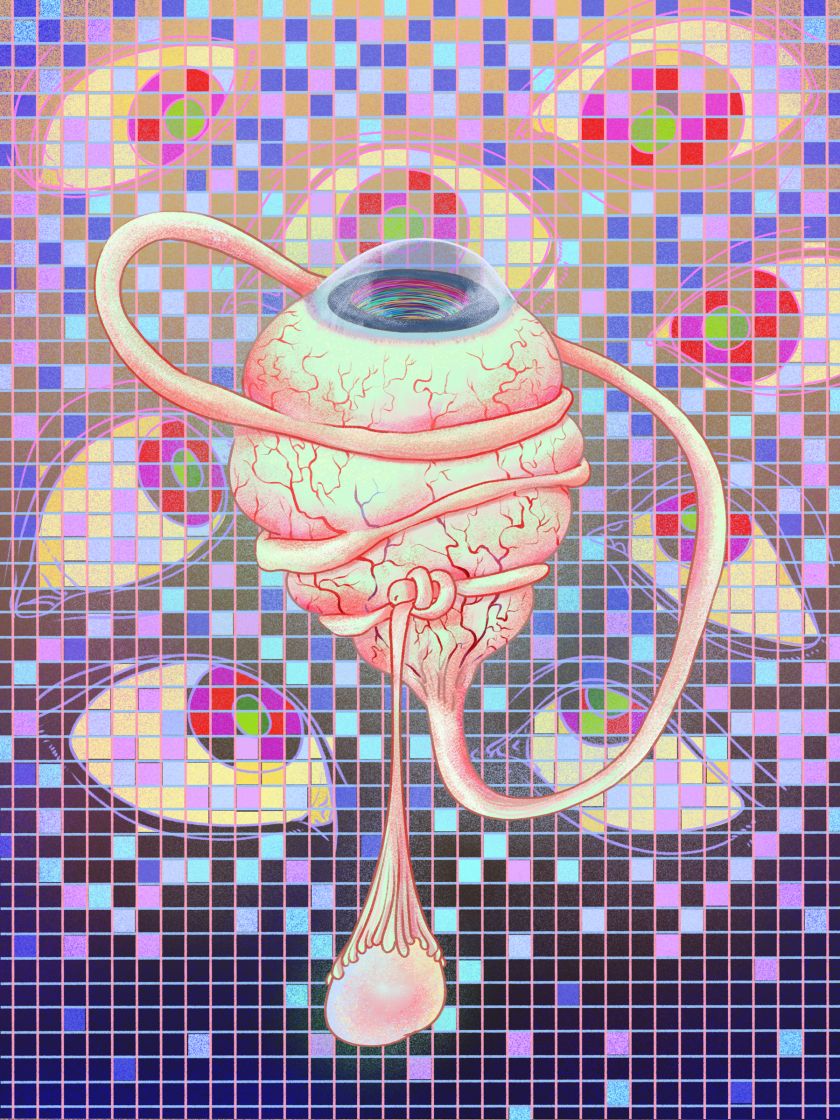
© Wenjia Wang
Inspired by lockdown, Wenjia Wang’s evocative illustrations explore the connection between mind and body in a fresh and unusual way.
We like to talk about mind and body as separate things because it’s convenient and it stops us tying ourselves up in linguistic knots. But deep down, we know they can’t really be separated, and for many, the experience of lockdown only heightened that reality.
Wenjia Wang, a Chinese-born illustrator who’s lived in the United States since the age of 17, explores this precise subject in her project How Do You Feel.
“At the beginning of the pandemic, because of the lockdown and the fear of catching the virus, I isolated myself and became almost myopically focused on myself and how my body feels,” she recalls.
“Because of the mental tension, I realised that the mind can influence how the body feels. The physical experience activates the psychological feelings, and vice versa. This is called Embodied Cognition, which is the relationship between physical experience and psychological states.”
Her project, then, consists of a series of illustrations that focus on showing the human body’s reaction under the influence of the physical environment and subjective consciousness. Each drawing presents one specific body part and its reaction to a specific environment.

© Wenjia Wang

© Wenjia Wang
“When I created these illustrations, I wanted my audience to feel connected with them,” says Wenjia. “Thus, I personify the organs as a way to depict the feelings, as if the organs have their own consciousness. I want the viewer to relate to the organs and feel what the organs feel.
“For example, in Eye Pressure [shown at the top of the page], the eye is intensively constricted by its own nerves, and because it is squeezed by the nerves, the eye is so congested and covered by blood vessels. The background is a giant digital screen containing multiple eye shapes representing the electronic surveillance.”
Overall, she’s found working on the project to be a cathartic experience. “As an Illustrator, being able to be true to me, draw out my feelings, and share them with others is a satisfying thing,” she says. “I hope the audience will enjoy my exhibit and feel connected to my illustrations.”

© Wenjia Wang

© Wenjia Wang
The project draws a lot of attention to the freelance illustrator, who was born in China and then moved to the United States alone when she was 17. It wasn’t an easy ride. “Living alone, away from my family, with broken English, was tough,” she recalls. But her love of art kept her going. “I’ve always been passionate about art, and I have been practising traditional Chinese calligraphy from a very young age,” she says.
Encouraged by her high school art teacher Mrs Rideout, she applied to art college. In 2018, she graduated from the School of Visual Arts with an Illustration major. She recently gained a Master of Fine Arts degree in Illustration from the Fashion Institute of Technology.

© Wenjia Wang

© Wenjia Wang
A member of the Society of Illustrators, Wenjia has been awarded in many professional illustration contests including 3X3 Magazine, American Illustration 39, American Illustration 40, Graphics, and MoCCA Awards of Excellence. Her work has appeared in several art festivals, including the New York Affordable Art Fair, and she has been represented by Emmanuel Fremin Gallery. Clients include Huawei, independent musicians, galleries, and local businesses.
“When colouring my work, I always want to have a bright, refreshing and tender colour palette,” Wenjia says. “Not for frivolous reasons, but to deliver messages that can make people think or relate to. I think it is fun to attract the audience’s attention with a playful colour palette and then shock them by the message delivered through the storytelling.”

© Wenjia Wang
